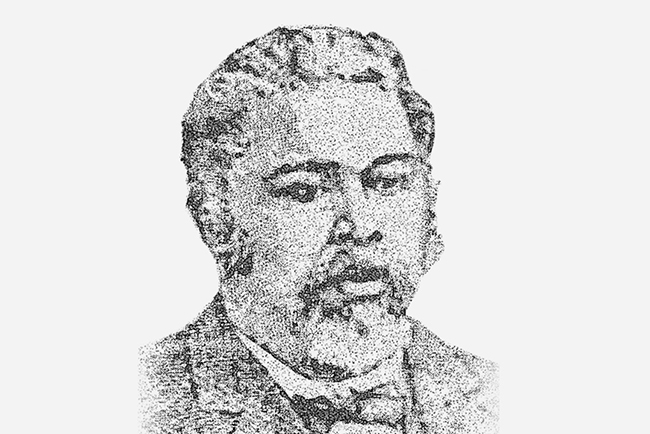
In honor of Black History Month, we wanted to share the stories of four Black Americans who shared their faith with the world.
George Liele
George Liele was born in 1750. He grew up as a slave in Virginia and Georgia. He was able to attend church, eschewing many of the common practices of the day. Liele was eventually ordained as the first Black Baptist pastor in the history of the United States.
During his time as a minister, he preached to both Black and white congregants, which was extremely rare at the time. He also sometimes traveled to speak to slaves on other plantations. While preaching at one of these plantations, he met a slave named David George and shared the gospel with him. David George became a Christian and went on to become a pastor. Eventually, he planted the first Baptist church in Canada before moving to Sierra Leone and planting a church there.
After obtaining his freedom, George Liele moved to Savannah, Georgia. When hostility increased there toward freed slaves, he moved his family to Jamaica. There, he began preaching to the slaves owned by the British people. It was against the law in Britain to preach to enslaved people, so George was thrown in prison. He continued to preach, though, once he was released.
After growing up in slavery, George Liele became the first Black Baptist pastor ordained in the United States and the first known Baptist missionary. Click To TweetGeorge Liele was the first known Baptist missionary. While in Jamaica, George Liele wrote a letter to the British Baptist Missionary Society asking for funding for a building and extending an invitation to join in his work in Jamaica. Several people from Britain came and visited. Their testimonies of how slaves were being treated in Jamaica helped in the work to abolish the British slave trade. Many still consider George Liele one of the men who helped Jamaica gain independence.
Read more about George Liele here and here.
Phillis Wheatley
Phillis Wheatley was born around 1753, captured in Africa, and brought to America as a slave when she was seven years old. She lived in Boston, where she learned to read and write and attended church with her master’s family. Her master and mistress knew George Whitefield, the famous evangelist. He so inspired Phillis that upon his death, she wrote a eulogy for him. People were so moved by her writing, it was published in newspapers and passed around in America and in England.
Phillis Wheatley continued to write in the midst of the upheaval of the Revolutionary War. She wrote about what was happening in the world around her, and her faith in God. Her master took her works to be published. In order to be published, Phillis had to sit before a tribunal to prove she had written those works. She became the first African female poet to have a book published in America.
Phillis Wheatley became the first African female poet to have a book published in America. Click To TweetAfter a trip to London, Phillis Wheatley returned to America, and was granted her freedom from slavery. She often wrote and thought about the freedom God gives, saying that serving Christ was “the most perfect freedom.” She also wrote about and fought for the freedom of all Americans. Today, a statue of Phillis Wheatley stands in Boston, honoring the gifts she used to point to the value of every image bearer and fight for freedom for all.
Read more about Phillis Wheatley here.
Charles Boothe
Charles Octavius Boothe was born into slavery in Alabama in 1845. He learned to read at a very young age, due in large part to teachers who boarded at the plantation. He started reading the Bible and grew up in the African American Baptist church. Charles often spoke of his grandparents’ legacy of faith.
He made a profession of faith in 1865 and went on to plant two churches, as well as play a pivotal role in the establishment of the Colored Baptist Missionary Convention of the State of Alabama. He was concerned with preaching the gospel and helping newly freed slaves, like himself, know Jesus.
Charles Boothe wrote two major works in his lifetime: Plain Theology for Plain People and the largely autobiographical Cyclopedia of the Colored Baptists of Alabama: Their Leaders and Their Work.
Born into slavery, Charles Boothe wrote two major works in his lifetime, including "Plain Theology for Plain People," which explained the doctrines of God, man, salvation, the Bible, and more. Click To TweetIn Plain Theology for Plain People, Charles Boothe explained the essential doctrines of God, man, salvation, the Bible, and more from a Baptist perspective. Lexham Press recently reprinted his book to continue educating today’s scholars and “plain people.”
Read more about Charles Boothe’s Plain Theology for Plain People here.
Mahalia Jackson
Mahalia Jackson was born on October 26, 1911, in Louisiana. She grew up singing at Mount Moriah Baptist Church. She sang hymns and gospel music her whole life, touring all over the world. Many call Mahalia the “Queen of Gospel.”
She became part of the Civil Rights movement, singing before Martin Luther King Jr.’s speeches and at marches like the Freedom March in Selma, Alabama. She famously sang “There Is a Balm in Gilead,” one of King’s favorite hymns. Before King delivered his “I Have a Dream” speech in Washington in 1963, Mahalia Jackson sang, “How I Got Over.”
Mahalia Jackson, the first gospel singer to win a Grammy, is said to have inspired Dr. Martin Luther King, Jr. to give his most famous line: "I have a dream …" Click To TweetSome say the famous line, “I have a dream …” was not part of the original speech that day in Washington. Mahalia Jackson, though, sitting near the stage and knowing Dr. King, yelled out, “Tell them about the dream!” So King pushed aside his notes and began to share his vision for America—a time when his children could be judged by their character and not the color of their skin.
Sometimes referred to as “the soundtrack of the Civil Rights Movement,” Mahalia’s voice proclaimed truths from Scripture and the gospel through song.
Read more about Mahalia Jackson here.
For permission to republish this article, contact Marissa Postell Sullivan.








